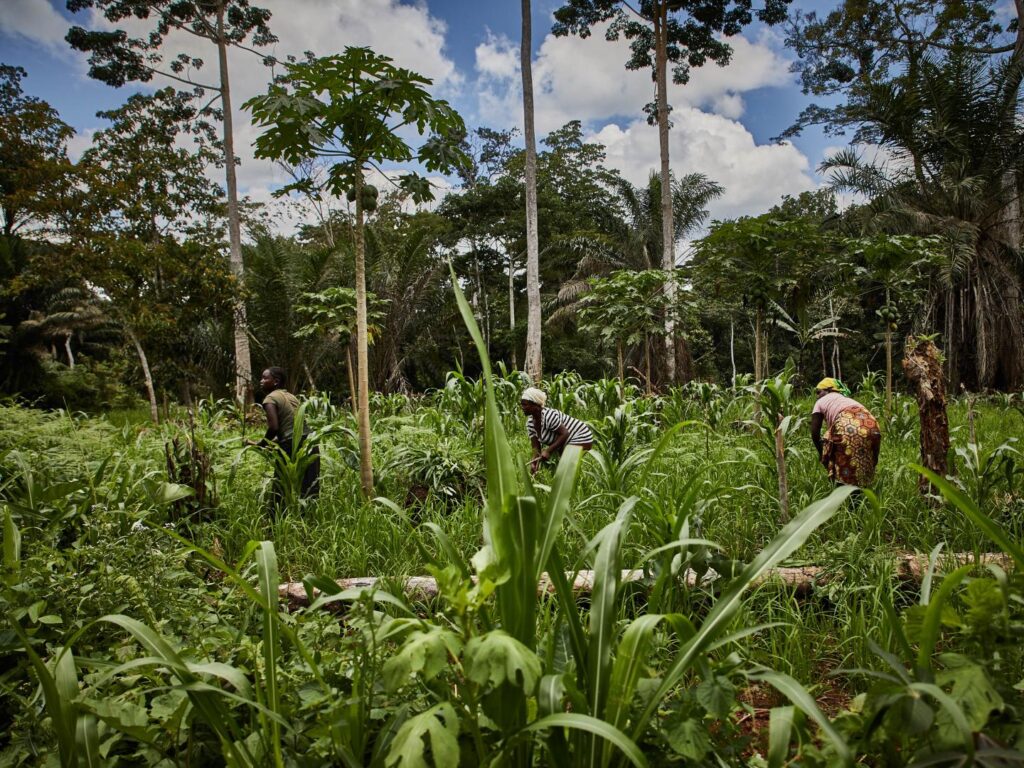The tropics and subtropics, known for their rich biodiversity, are experiencing significant declines in species abundance, diversity, and distribution. This decline is attributed to various factors such as climate change, rapid economic development, overexploitation of natural resources, and societal indifference toward conservation efforts. The importance of biodiversity conservation cannot be overstated, given its important role in supporting socio-economic activities. Countries, including Nigeria, are increasingly recognizing the urgency of conservation practices to prevent the extinction of species and ecosystems.
To address these challenges, many nations have established national monitoring activities and seek guidance from the global scientific community. Climate change poses the most significant threat to global biodiversity, leading to the disappearance of animal species and the extinction of rare plants and fruits. In Nigeria, biodiversity conservation is essential for sustaining life and supporting positive business performance, particularly in sectors such as oil and gas. However, areas of high biodiversity value are often destroyed under various pretexts.
Nigeria became a signatory to the Convention on Biodiversity in 1994, committing to conservation, sustainable use, and equitable sharing of genetic resources. Nevertheless, the country’s rich ecological potential is under threat due to overexploitation and misuse. Environmental degradation and biodiversity loss are attributed to factors such as rapid population growth, poor agricultural practices, and weak institutional frameworks.
Biodiversity encompasses the variety of life at the ecosystem, community, species, and genetic levels. Despite global efforts to conserve biodiversity, Nigeria faces significant challenges, including a lack of effective implementation of conservation measures. There is a disconnect between rhetoric and action, with numerous discussions and international participation in conventions failing to address the country’s biodiversity depletion and deforestation.
Nigeria’s biodiversity resources face the risk of extinction without intervention. The country’s diverse flora and fauna are attributed to favorable climatic conditions and varied habitats. Endemic species and threatened taxa highlight the importance of conserving Nigeria’s biodiversity. Various protected areas, including national parks, bird areas, and reserves, play an important role in biodiversity conservation efforts. However, challenges such as social apathy, conflicting interests, and inadequate dissemination of information pose significant obstacles to conservation efforts. Urgent action is needed to address these challenges and safeguard Nigeria’s biodiversity for future generations.
Threat to Biodiversity in Nigeria
Biodiversity in Nigeria is facing a severe risk of extinction due to various factors, including climate change, rapid economic development, changes in land use for agriculture, invasive species, and pollution from crude oil exploration and exploitation. The indifference of both the government and citizens toward biodiversity protection has heightened concerns about the potential catastrophic loss of species in the near future. Therefore, urgent implementation and serious consideration of conservation practices are imperative to avert such a crisis.
Nigeria and Africa as a whole possess rich and diverse biological resources that form the basis of their socio-economic systems. However, these resources are under constant threat from anthropogenic activities. Natural habitats are being lost due to over-harvesting of resources, deforestation, bushfires, soil erosion, desert encroachment, and coastal erosion. Desertification is advancing southwards at an alarming rate, affecting several states, while soil erosion and coastal/marine erosion are widespread issues across the country.
Despite being one of the world’s largest crude oil producers, Nigeria is classified among the poorest countries, highlighting the paradoxical relationship between natural resource abundance and economic prosperity. Crude oil exploration and exploitation in the Niger Delta region have led to environmental hazards such as soil degradation, deforestation, water resources degradation, and biodiversity loss, resulting in significant human and infrastructural losses.

Anthropogenic activities, driven by population growth and poverty, have contributed to the degradation of forests and savannas, leading to the loss of vegetation cover, fertile topsoil, and wildlife species. Wildlife loss is a significant concern, with numerous animal and plant species threatened with extinction. Additionally, the proliferation of governmental agencies responsible for environmental protection and conservation often leads to conflicting interests and ineffective coordination, exacerbating the degradation of natural resources.
Environmental Conservation Practices in Nigeria
The International Union for the Conservation of Nature and Natural Resources (IUCN) defines conservation as the responsible management of human activities in the biosphere to maximize sustainable benefits while safeguarding the ability of future generations to meet their needs. Conservation efforts in Nigeria have a historical precedent dating back to the colonial era, primarily focused on forest resources. Traditional conservation methods included establishing forest reserve areas for spiritual and recreational purposes, along with regulations against harvesting firewood from designated forested areas. However, after gaining independence in 1960, Nigeria shifted towards monoculture plantation practices, such as teak, gmelina, oil palm, rubber, and various species of pine and eucalyptus.
The management and protection of Nigeria’s forest reserves were initially overseen by state forest reserve agencies, with federal-level involvement through the Federal Department of Forestry and Agricultural Land Resources under the Ministry of Agriculture and Natural Resources. The Nigerian Conservation Foundation (NCF), established in 1980, collaborates with governmental and non-governmental organizations, including the World Wide Fund for Nature (WWF), BirdLife International, and the Royal Society for the Protection of Birds (RSPB), among others. The NCF’s conservation projects span various areas, including wetland preservation, watershed management, forestry policy review, mangrove and wetland protection, and ecotourism initiatives.
Nigeria’s biodiversity faces threats from various sources, with numerous species classified as threatened. Species such as the drill (Mandrillus leucophaeus) and the Cross River gorilla (Gorilla dretii) are endangered, particularly due to habitat loss and fragmentation. Invasive species, such as the Nypa palm and bracken fern, pose additional challenges by competing with native species for resources and reducing overall biodiversity.
Overall, conservation efforts in Nigeria involve a combination of policy reforms, protected area management, environmental education, community engagement, international cooperation, research, and collaborative initiatives to ensure the sustainable management of natural resources across borders and ecosystems.
Some Major Challenges to Conservation Practices in Nigeria
1. Numerous governmental agencies tasked with environmental oversight often operate in conflicting ways, deviating from their designated roles. This may result from corruption within these agencies, leading to a lack of adherence to statutory guidelines. Additionally, inadequate functionality of these agencies may stem from administrative hurdles and collusion between officials and those violating regulations.
2. Conservation initiatives face significant threats from economic development, which often prioritizes exploitation of natural areas for mining, exploration, road construction, and infrastructure expansion. Moreover, challenges like the lack of project sustainability, insufficient funding, and poverty among local communities further jeopardize conservation efforts.
3. There is a shortage of adequately trained personnel and essential information regarding biodiversity conservation practices, hindering effective implementation.
4. The absence of national legislation specifically addressing biodiversity poses a significant barrier to comprehensive conservation efforts.
5. Climate change poses a substantial threat to biodiversity conservation, exacerbating existing challenges and potentially leading to further habitat loss and species decline.
6. The incomplete understanding of various organism species and their overall ecological value presents a barrier to effectively assessing and addressing biodiversity conservation needs.



